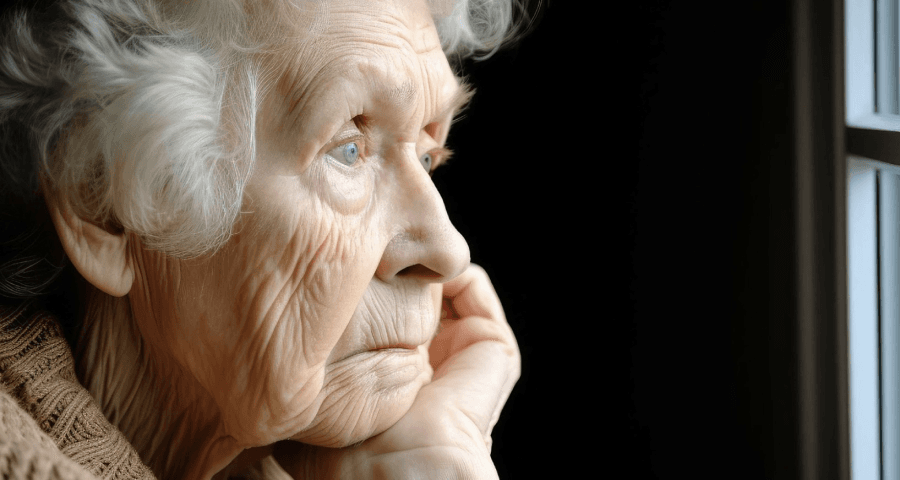
Nursing home abuse and neglect put vulnerable residents at serious risk, leading to malnutrition, dehydration, infections, and preventable injuries. When facilities fail to provide adequate care, residents suffer, and families are left feeling helpless. Lack of supervision, improper medical treatment, and unsafe conditions can result in devastating harm. Understanding the warning signs, knowing your legal rights, and holding negligent facilities accountable are crucial steps in protecting your loved ones. Learn how to take action and seek justice.
May 15, 2025
3 min
When families choose a nursing home for a loved one, they expect safety, compassion, and professional care. But what happens when the danger comes not from staff—but from another resident?
Resident-on-resident abuse is a deeply troubling, often hidden problem in long-term care facilities. It occurs when one resident physically, emotionally, or sexually harms another. In many cases, the aggressor has a cognitive or behavioral disorder and has previously shown signs of violence or agitation. Despite these warnings, some nursing homes fail to separate residents appropriately or provide the supervision needed to prevent incidents.
At Michael Hill Trial Law, we represent families whose loved ones were injured or traumatized due to another resident’s actions—and the facility’s failure to intervene.
This form of abuse includes a wide range of harmful behaviors:
While some incidents may seem minor, repeated abuse or violent acts can cause long-term physical and psychological trauma. Even worse, they are often brushed off as unavoidable or “part of aging”—a stance that is both unethical and legally unacceptable.
Elderly residents with physical or cognitive limitations are especially vulnerable. This includes individuals who:
These residents depend on staff to protect them. When a facility fails to assess risk, implement safeguards, or separate aggressive residents, they breach that duty of care.
Several systemic issues increase the risk of one resident harming another. These include:
Short-staffed facilities cannot provide the supervision needed to monitor interactions, especially during high-risk times such as nights, meal periods, or in communal areas.
Some residents with mental illness, traumatic brain injuries, or dementia may exhibit violent behavior. Nursing homes must assess residents for aggression and adapt care plans accordingly.
Placing vulnerable individuals in the same room as known aggressors creates foreseeable danger. Many facilities ignore past behavioral red flags when making these decisions.
When caregivers are not trained to recognize escalating behavior, they may fail to prevent altercations or intervene quickly during an incident.
After one resident harms another, a facility must take immediate action. When they don’t—due to indifference, lack of space, or disorganization—abuse often continues.
Many victims are unable—or afraid—to speak up. Families should remain alert to red flags that may indicate abuse by another resident:
If you observe these signs, demand an immediate investigation and report the situation to the appropriate authorities.
Nursing homes have a legal and ethical duty to protect residents from foreseeable harm—including from other residents. Under federal regulations and state laws, facilities must:
When they fail to meet these obligations, they may be held liable for:
At Michael Hill Trial Law, we work to prove not only that abuse occurred—but that the facility could have and should have prevented it.

One of our clients came to us after their mother suffered repeated bruises and a broken wrist. She shared a room with a male resident who had a documented history of aggression. Despite prior incidents and repeated complaints from staff, the facility took no action. The abuse escalated until the victim required hospitalization.
Through investigation, we obtained internal emails and staff reports showing the facility knew the risk but failed to act. Our firm secured a significant settlement for the family and compelled the nursing home to revise its risk assessment and room assignment policies.
If your loved one has been harmed due to resident-on-resident abuse, your family may be entitled to compensation for:
Each case is different, and we take the time to listen, investigate, and build the strongest case possible for justice and reform.
With extensive experience in nursing home litigation, our team offers:
Our mission is to protect the most vulnerable and create safer care environments for all.
If you suspect your loved one is a victim of resident-on-resident abuse:
Abuse between residents is not a minor incident—it is a breach of trust, safety, and dignity. At Michael Hill Trial Law, we stand up for families who have been failed by negligent care facilities. Through legal action, we aim not just to secure justice for victims but to push for systemic changes that protect future residents.